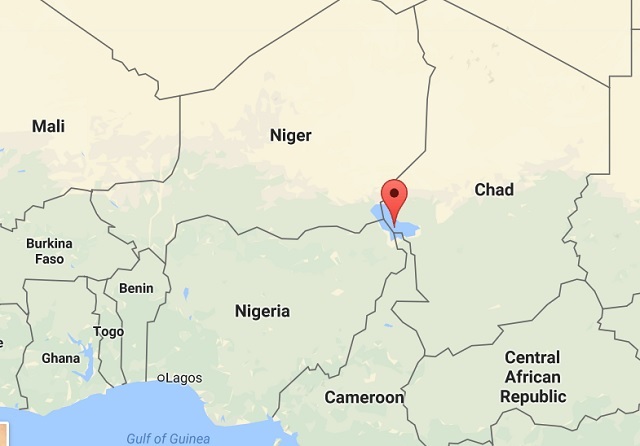
Kano, Nigeria | AFP |
Nigeria’s military on Wednesday said regional troops had recaptured a town on the shores of Lake Chad from Boko Haram, but the Islamists claimed to have inflicted heavy casualties.
Army spokesman Sani Usman said its troops and counterparts from the Multi-National Joint Task Force (MNJTF) had “captured Malam Fatori… after a fierce battle” backed by air support.
But “the terrorists reinforced around (the) border with Niger… while the troops were consolidating on this success”, he added in an emailed statement.
Several Boko Haram fighters were killed, said Usman, without specifying a number.
Malam Fatori, in Borno state, was liberated in March last year as part of a regional counter-offensive against the Islamists, who had captured swathes of territory in northeast Nigeria in 2014.
But fighters from Boko Haram, which is affiliated to the Islamic State (IS) group and now calls itself Islamic State West Africa Province, reoccupied the town after troops left.
The MNJTF is made up of soldiers from Nigeria, Cameroon, Chad, Niger and Benin.
Northern Borno state, which is near the border with Niger, is inaccessible because of insecurity, with Boko Haram pushed into areas in and around Lake Chad by the military offensive.
There have been an increasing number of attacks in southeast Niger in recent weeks, an indication the rebels have re-grouped and switched focus.
Boko Haram claimed its fighters, which it dubbed “the cavalry of the caliphate”, attacked the regional force.
“This offensive led to the death of more than 40 soldiers and left tens of others injured,” it said in a statement posted on social media.
There was no way of verifying either the military or the insurgents’ claims.
Last month, the IS high command designated Abu Musab al-Barnawi as Boko Haram leader, replacing Abubakar Shekau. Shekau, however, has maintained he is still in charge.
Barnawi has criticised Shekau for his indiscriminate killing of civilians, most of them fellow Muslims.
Security analysts have said the split could indicate a shift in focus by the pro-Barnawi faction away from targeting crowded marketplaces and mosques to hitting military and government targets.
 The Independent Uganda: You get the Truth we Pay the Price
The Independent Uganda: You get the Truth we Pay the Price



